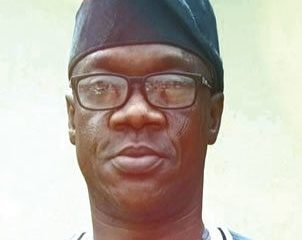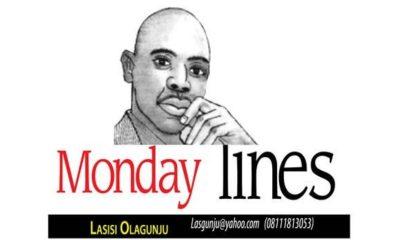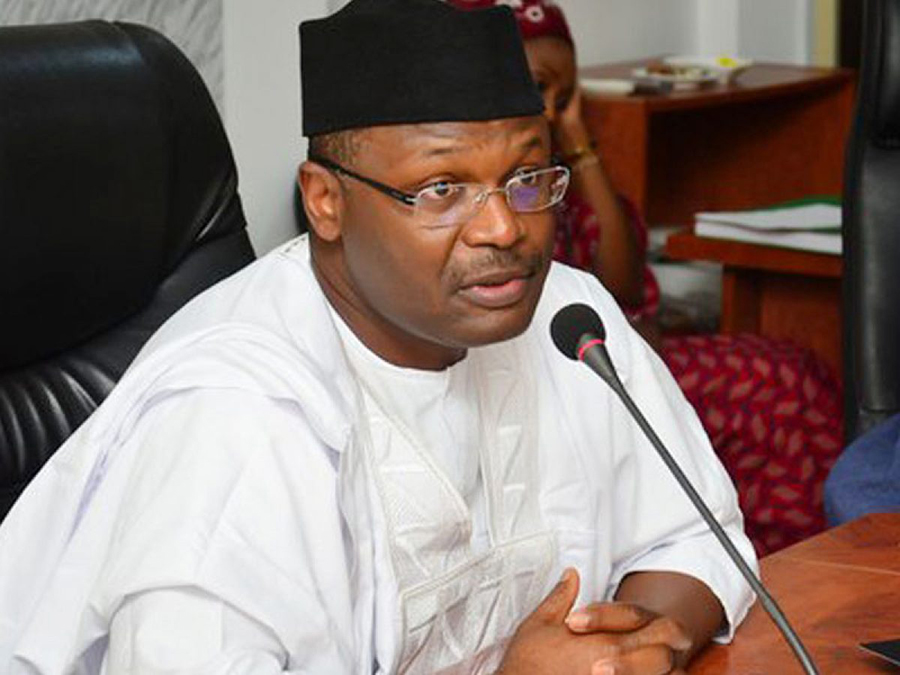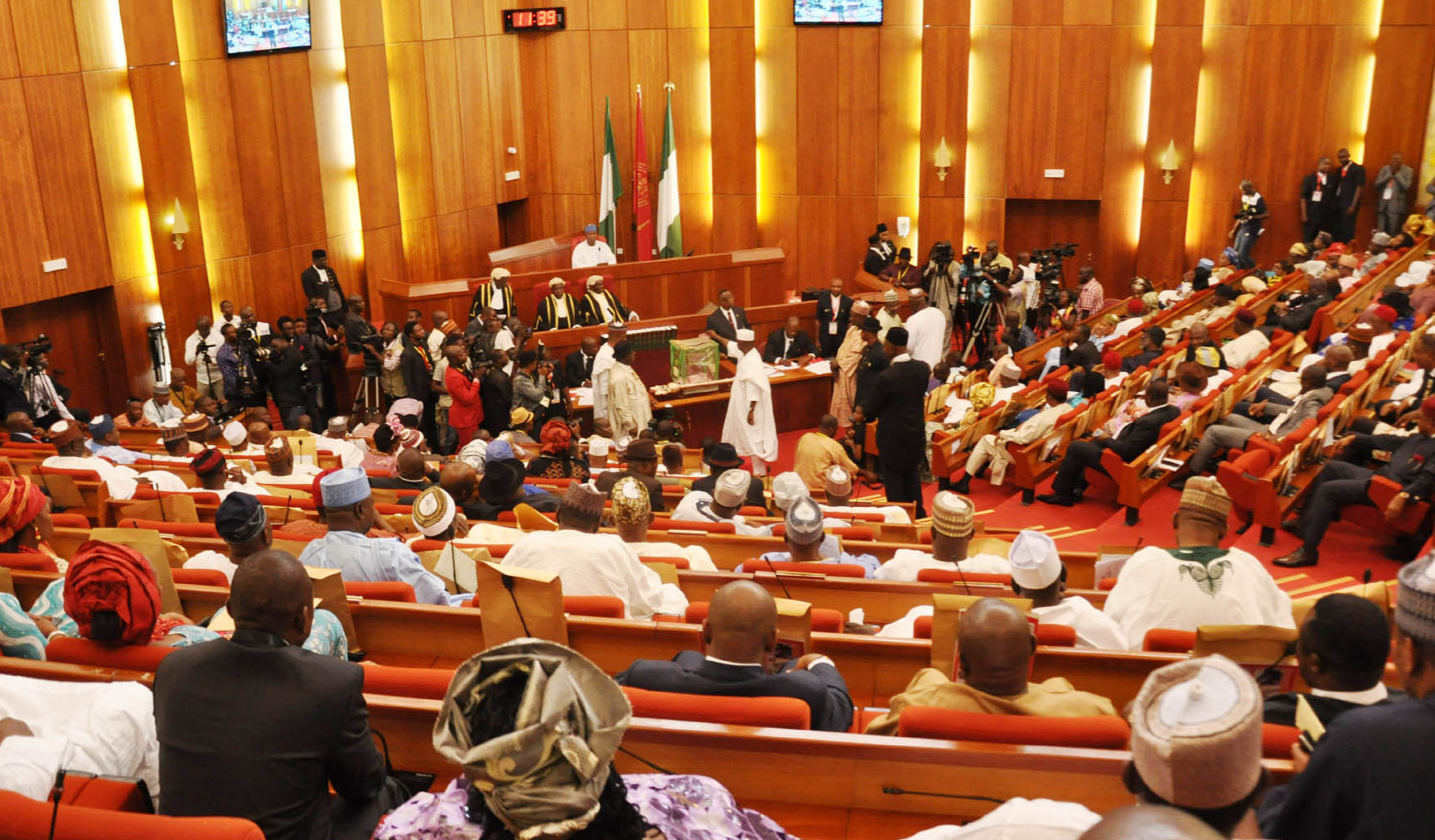News
OPINION: Tinubu, Matter Don Pass Be Careful
Published
6 months agoon
By
Editor
By Lasisi Olagunju
The last premier of the Western Region, Chief Samuel Ladoke Akintola, asked his guest what the town was saying. The guest told him the town was solidly behind him. The guest backed his claim with a cassette which he said contained the adulation with which the people of Ibadan welcomed every step so far taken by Chief Akintola. The premier listened to the cassette and brightened up. He thanked the guest, Chief A.M.A. Akinloye, as he took his exit. Akintola’s young confidant and aide, Adewale Kazeem, walked in. The premier told him of Akinloye’s good news and gave him the cassette to listen to. Adewale listened to the cassette, sighed and was downcast. The premier looked at the worried face of Adewale Kazeem and asked why. “The town is not good,” he told Chief Akintola, and added that the content of the cassette was not a true reflection of what the town was saying about the premier and his government. A shocked Akintola intoned “ta l’a á wàá gbàgbó báyìí (who do we believe now)?” The young man told the premier: “You had better believe me, Baba.”
The above happened sometime in 1964. A year later, the problem multiplied for Chief Akintola who became increasingly troubled, his hands unsteady; “he could no longer write his signature on a straight line.” One day, he was advised by the same aide, Adewale Kazeem, to resign his post as premier and end the raging crisis in the region. Akintola’s response was: “Adewale, ó ti bó; ikú ló má a gb’èyìn eléyìí (Adewale, it is too late. It is death that will end all this).” The above details are on pages 161 and 172 of the book ‘SLA Akintola in the Eyes of History: A Biography and Postscript’. The book, published in 2017, was written by a former member of the House of Representatives, Hon. Femi Kehinde. The author did not put those conversations in the book as hearsay. He heard them directly from Adewale Kazeem who rose in life to become a well-respected oba in Osun State.
At 5.50pm on 6 August, 1962, Chief Obafemi Awolowo left his place for the residence of the Prime Minister, Alhaji Abubakar Tafawa Balewa, for a 6pm appointment. It was at the height of the political crisis of the early 1960s. Awo arrived at Balewa’s 8 Lodge on the dot and wasted no time opening their discussion. He asked Balewa: “Are you sure in your mind that this crisis will end well for all of us and for Nigeria?” Chief Awolowo said “Balewa replied in a low, solemn voice that he was sure it would not end well…” (See Awolowo’s ‘Adventures in Power’, Book Two, page 249). And, did it end well? There is no point answering that question. We all know how it ended. Today, there is a new fire on the mountain. Things are bad; very bad. Paris-born Nigerian singer, Bukola Elemide (Asa) sings: “There is fire on the mountain/ And nobody seems to be on the run…” The first time we heard a cry of fire and fear in our politics was in the Western House of Assembly in 1962. Since then, the mountain of Nigeria has been badly scarred by political bush-burners. A fresh blaze is balding the skull of the poor today and the consequences cannot be imagined.
FROM THE AUTHOR: OPINION: Nigeria Vs South Africa: Beyond Football
There are consequences for everything anyone does or does not do. Even the words that I use here will have consequences. Ethnic and business ‘friends’ of the president will abuse me like they’ve always done to poets who refuse to do palace clowning. They forget that I am a child of the farm; I walk the furrows, not the ridge. I am beyond their shot. Authored by researchers Iain McLean and Jennifer Nou, a piece appeared in the October 2006 edition of the British Journal of Political Science. And the title? ‘Why should we be beggars with the ballot in our hand?’ That is the question we dare not ask here without them saying we should bring our heads. They say the president is our brother who cannot do wrong. They forget that we were not taught in Yoruba land to merely chase away the fox and pamper the cocky bumbling hen. We were taught to give justice to fox and then to hen – one after the other. How is keeping quiet when the ‘war’ is all around us going to help “our brother”?
The hunger that is in town today is more serious than the hunger that made Sango burn down a whole town. Yet, our leader appears not worried. He is not scared. It is business as usual. Why are we not fearing the consequences of our misbehaviour? A journalist recalled that sometime in 1965, Prime Minister Balewa was at the airport in Ikeja and was asked what he was doing to quench the fire in the Western Region. The big man looked around and declared that “Ikeja is part of the West, I can’t see any fire burning.” Truly, he was kept busy with positive assurances by flightless birds around him. He lived in denial, or in self-deception, he ignored the firestorm. The fire he refused to see grew uncontrollably wild; it became a blaze so much that when the cock crowed at dawn on January 15, 1966, it was too late for the head of the Nigerian government to save even himself.
There were protests in parts of the country last week by hungry Nigerians. But President Bola Tinubu’s trusted people said the protests were unreal; they said the president’s policies are good and popular with the people. They are telling the president that the hungry are not very hungry. They said it was the opposition playing politics, inciting the poor against the state. I saw Lagbaja, the mystery musician, from a distance at the Obafemi Awolowo University, Ile Ife, on Friday. I tried unsuccessfully to reach him and get him to sing: ‘Mo sorry fun gbogbo yin’ to those telling the naked president that his garment is beautiful. The ‘sorry’ is more for Tinubu. He is the one chosen and crowned to rule; and he is the one whose tenure is being measured by mass suffering, mass hunger, mass kidnapping. He is the one being scaffolded from the ugliness of the street. Tinubu is an elder. Should it be difficult for him to know the next line of action when a load is too heavy for the ground to carry and is too heavy for the rafters? We say in Yoruba land that when the going gets tough and life faces you, shoot at it; if it backs you, shoot it. When you are alone, reconsider your stand.
FROM THE AUTHOR: OPINION: Abuja And The Two Nigerias
Did President Tinubu read Segun Adeniyi of Thisday last week? The columnist asked him to go and watch again the Yoruba mainframe play, Saworoide. If you are not Yoruba, look for the plot summary of that play, it should be online. Read it. It should tell what the warning is all about. They are all prophets – the warners. Did the president read Abimbola Adelakun of The Punch last Thursday? She warned that “things are getting out of hand.” Did Tinubu read Tunde Odesola of the same newspaper the following day? He wrote that in Tinubu’s Nigeria, “the poor can’t inhale, the rich can’t exhale.” Farooq Kperogi of Saturday Tribune has written twice (last week and the week before) on hunger and anger in the land. He warned Tinubu two days ago not to see himself as Buhari who misruled big time but escaped the whips of consequences. Festus Adedayo yesterday in the Sunday Tribune likened today’s Nigeria to ravaged Ijaiye, a defeated community of hopelessness. I, particularly, find very apt Adedayo’s reading of today’s suffering as Kurunmi’s war-ravaged Ijaiye of 1860/61. In 2024 Nigeria, respectable people beg to eat; mothers sell one child to feed another. It is tragic. Bola Bolawole’s offering drew from French and Russian histories of social and political tragedy. I do not know what Suyi Ayodele of the Nigerian Tribune is cooking for tomorrow, Tuesday. I will be surprised if Tinubu’s ‘friends’ have not reported these warners to him as his enemies. That is how we are being governed.
The naira is ruined, the kitchen is on fire. We thought the regime of Muhammadu Buhari was the last leg of Nigeria’s relay race of tragedy. Now, it is clear he was actually the first leg in a race that won’t end soon. Tinubu took the baton from his game-mate and said his wand is made of hope in renewed bottles. His first eight months have proved that it is not true that the child does not die at the hands of the circumciser. This is better said in Yoruba – àsé iró ni wípé omo kìí kú lówó oní’kolà! This one is dying – or is dead. Before the president’s very eyes, the country has become a vast camp for stranded people; a nation of displaced people who live on food rations. The people now ask who is going to be their helper. Legendary Ilorin musician, Odolaye Aremu, at a moment of anomie as this, lamented that the one we said we should run to for safety is urging us to run even far away from where he is (eni tí a ní k’á lo sá bá, ó tún ní k’á máa sá lo).
Cluelessness is a physician treating leprosy with drugs made for eczema. Who told the president that opening the federal silos is the solution to a bag of rice selling for N70,000? It was N7,000 nine years ago. The protesting people from the north and in the south are not saying there is no food in the market. There is no scarcity of foodstuffs. It is not a demand and supply problem. There is food in the market, but the food in the market is priced beyond the earnings of the people. That is the issue, the problem, and it cannot be solved with handouts from grain reserves. It can only be solved with a magic that will shrink the price of foodstuffs to a size within the financial capacity of the poor.
FROM THE AUTHOR: OPINION: Ibadan Blast, Makinde And Federalism
Some say it is age that ails Tinubu making him unfelt in this season of pain. But, he won’t be the first old man to be king. There was a prince in Ofa who owned neither calabash nor plate (kò ní’gbá, kò l’áwo). But he had a large piece of cloth as his only item of value. He did not use it; it was too unuseful to the poor old man who would rather lend it for a fee to others for use on their special outings. The man’s condition remained critical, his poverty unremitting. He prepared himself and went to an elder for consultation. He sought counsel on what he could do so that he might gain importance. He was told to give up the large piece of cloth, sit back and watch. He did as he was told and soon after that sacrifice, the king of Ofa died and the people of Ofa made the poor old man king. They said among themselves that “this one will not be long before he dies and another will take his place.” But the old man became king and refused to die. Instead of dying, he became increasingly robust, younger and stronger. Life and living in Ofa became good and pleasant as well. The poor became prosperous and the rich richer. The people of Ofa fell in love with their king; they no longer wanted him to die. He reigned long and well. At the end of his journey, the departing king was satisfied that he had good tidings to take to his alásekù – those who reigned without destroying the crown, the ones who passed the stool to him for him to pass to others. This Ofa story belongs in the grove of the wise; it is deeper than I have told it. Its code is with the elders.
All who are favoured are counselled to take it easy with life. They should cast away the garment of greed, of hubris and of lust for the self. If they care, they can take counsel from these lines from the ancestral scroll: “Do not run the world in haste. Let us not hold on to the rope of wealth impatiently. What should be treated with mature judgment should not be treated in a fit of temper. Whenever we arrive at a cool place, let us rest sufficiently well and give prolonged attention to the future; let us give due regard to the consequences of things. We should do all these because of the day of our sleeping, our end (Má fi wàrà wàrà s’ayé, K’á má fi wàrà wàrà rò m’ókùn orò. Ohun a bâ fi s’àgbà, K’á má fi sè’bínú. Bí a bá dé’bi t’ó tútù, K’á simi simi, K’á wo’wájú ojó lo títí; K’á tún bò wá r’èhìn òràn wò; Nítorí àtisùn ara eni ni).
Tinubu’s salvation lies with his orí inú- his inner head. That is the priest he should consult. It is what he should go and ask for the way. His reign is painful.
You may like
News
FULL LIST: Those Supporting, Against Aug 1 Nationwide Protest
Published
9 hours agoon
July 26, 2024By
Editor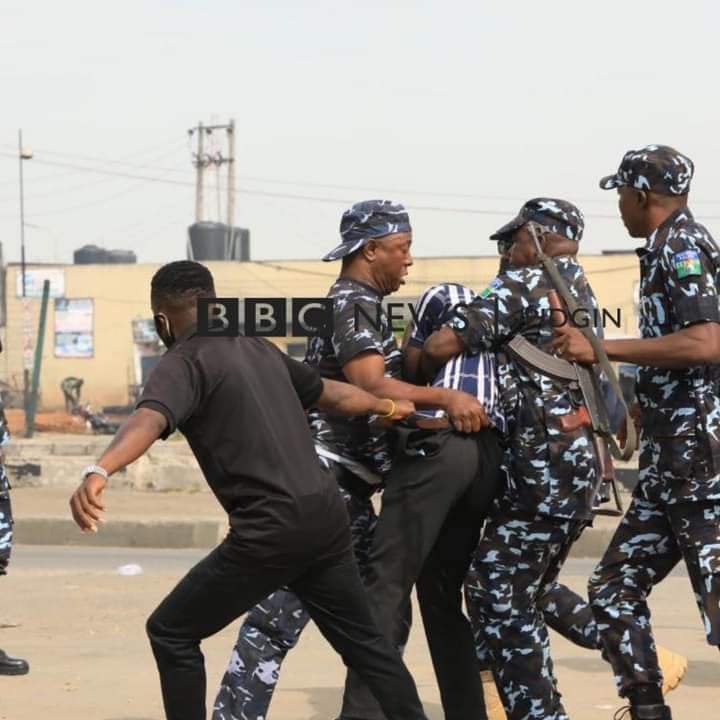
It is no longer news that some Nigerians are planning to march against economic hardship under the ‘EndBadGovernance’ protest from August 1 to 10.
The demonstration, which is gaining traction on social media, has been scheduled to be held across all states of the Federation as well as the Federal Capital Territory, Abuja.
However, its organisers have remained largely anonymous as no group has come forward to take responsibility.
The August 1 protest comes on the heels of similar demonstrations in Kenya, from which experts say Nigerians may have drawn inspiration.
Kenyan youths staged massive protests for weeks, forcing President William Ruto’s government to backtrack on tax hikes.
Organisers used social media platforms like X (formerly Twitter) and Instagram to mobilise millions of young Kenyans for protests — a similar strategy deployed on Nigerian social media space.
READ ALSO: Act Fast On Oil Spill Rocking Forcados Area, CSOs Task FG, Delta Govt
In October 2020, Nigeria experienced massive protests nationwide when thousands of young people demonstrated against police brutality.
As the hunger protest movement gains momentum, with thousands of youths set to take action, national and state authorities have warned the organisers to tread softly.
Meanwhile, human rights lawyer, Inibehe Effiong has revealed that participants in the planned nationwide protest would receive free legal representation if arrested and/or charged to court in Lagos State.
Citing the loss of life and property that characterised the #EndSARS protest in the country, many stakeholders, CSOs, bodies and others have pleaded with the organisers to shelve their plan, adding that the issues raised by them were already being addressed.
In the same vein, leaders from the southern and northern parts of the country have also joined the government to oppose the protest.
State governors have also cautioned against the protest, saying it is potentially dangerous.
READ ALSO: DSS Warns Against Planned Nationwide Protest, Identifies Sponsors
As part of moves to placate aggrieved citizens, the President sent a bill to raise the minimum wage from N30,000 to N70,000 to the National Assembly this week. Both chambers of the legislature speedily passed the bill on Tuesday, awaiting the President’s assent.
So far, here is a list of those who are against, or supporting the planned protest as complied by The Nation
AGAINST
Executive Director, Citizens for Development and Education, Ibrahim Waiya
Controversial singer Portable
Christian Council of Nigeria (CCN)
Enugu Innovative Youths
Orji Kalu
Institute for Peace and Conflict Resolution
Northern Ethnic Youth Group Assembly
Kebbi State Government
Lagos State House of Assembly
SDP’s Adewole Adebayo
READ ALSO: Presidency, Obi Trade Words Over Planned Hardship Protest
Citizens for Development and Education (CDE), Ambassador Ibrahim Waiya
Arewa Concerned Citizens Forum
Southern Kaduna People’s Union (SOKAPU)
Confederation of All Progressives Congress (APC) Support Groups (CASG)
Arewa Youth Assembly
South-East Governors’ Forum
Minister of the Federal Capital Territory, Nyesom Wike
Femi Fani-Kayode
Members of the House of Representatives agreed to donate 50 per cent of their salaries for a period of six months.
Ogun State Governor Dapo Abiodun
Coalition of Concerned Civil Society Organizations (CSOs) in Kaduna state
Trade Union Congress of Nigeria (TUC)
Chieftain of the All Progressives Congress, Uche Nwosu
National Council of Traditional Rulers
Governor of Jigawa State, Umar Namadi
National Association of Nigerian Students in Lagos
Self-Reliance for Physically Challenged Traders of Nigeria
Chairman of Tantita Security Services Nigeria Limited, High Chief Government Ekpemupolo (Tompolo)
READ ALSO: Planned Protest: Tinubu Holds Emergency Meeting With Sultan, Ooni, IGP, Others
Rising Up for a United Nigeria (RUN) and Coalition of Civil Society Groups for National Stability and Cohesion
Actor Lege Miami
Door-to-door Youth and Women Initiative for Good Governance
Reno Omokri
Middle Belt Forum, MBF, Kaduna State chapter
Executive Director, Business Development of the Nigerian-Export Import Bank (NEXIM) , Hon Stella Okotete
National Association of Nigerian Students (NANS)
Christian Association of Nigeria (CAN)
170 members of the House of Representatives under the aegis of the “New Dawn Caucus – 10th Assembly”
Jama’atu Nasril Islam
Oba of Benin, Oba Ewuare II
SUPPORTING
Atiku Abubakar
The leadership of the Social Democratic Party led by National Chairman, Shehu Gabam
All Workers Convergence (AWC) led by Comrade Andrew Emelieze
Ayo Adebanjo-led faction of Afenifere
Lagos State Chapter of the Active Citizens Group Nigeria led by the group’s state coordinator, Adamma Ukpabi
Omoyele Sowore
Amnesty International
UNDECIDED
National Youth Council of Nigeria (NYCN) directed its 104 affiliate organizations to remain on standby.
NATION
News
Religious Leaders Harp On Tolerance At Grassroots Sensitisation Programme In Benin
Published
11 hours agoon
July 26, 2024By
Editor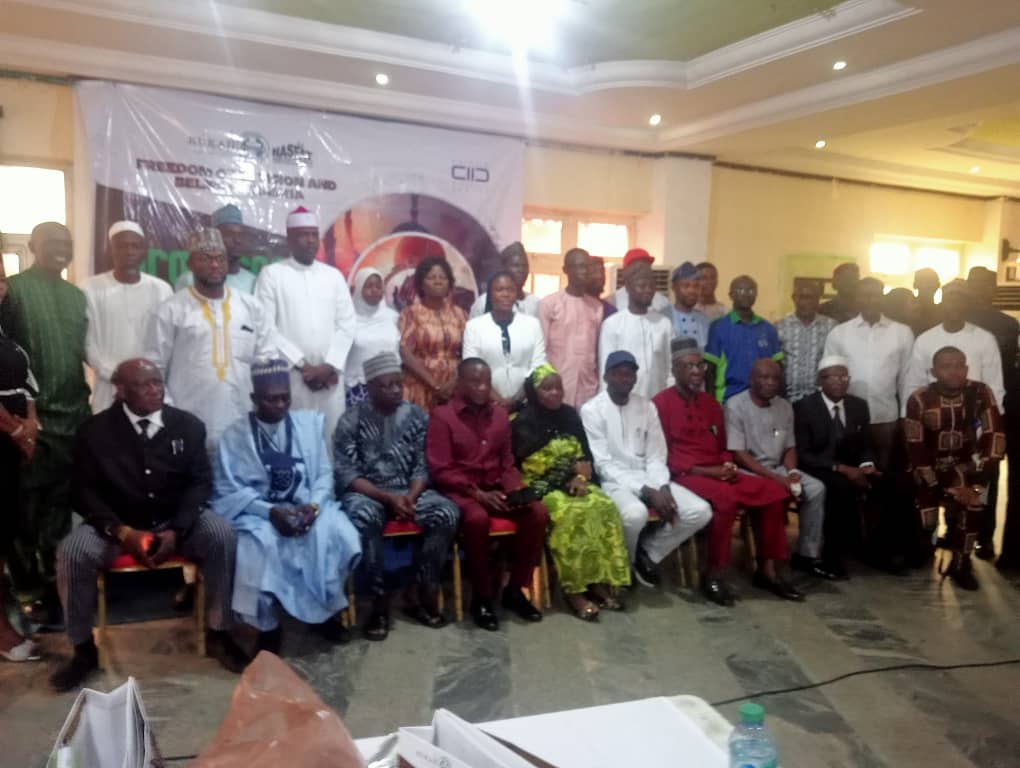
By Joseph Ebi Kanjo
The need for religious tolerance in Nigeria took the centre stage in Benin on Friday at a Grassroots Sensitisation Programme on survey report on Freedom of Religion and Belief (FORB) in Nigeria.
The programme, themed
MECHANISM TO MONITOR FREEDOM OF RELIGION AND BELIEF IN NIGERIA, was implemented by the National Human Rights Commission (NHRC); the Kukah Center (1KC) and Nasrul-lahi-l-Fathiu
Society (NASFAT), while King Abdullah ibn Abdulaziz International Center for
Interreligious and Intercultura Dialogue (KAICIID) provided the fund.
In her opening remarks, Project Coordinator, FORB, Hajia Halimat Oyedele, said the project aimed at increasing the level of coexistence and the opportunity for peace in the country, and also addressing the existing structural limitations.
She added that the project also aims at the “promoting changes to existing policies in order to ensure existing laws and mechanisms promote social cohesion and the respect of Freedom of Religion and Belief.”
READ ALSO: Obasanjo Makes Shocking Revelation About His Birth
She continued: “In addition, to prevent possible future violations, the project will also focus on spreading a culture of respect of difference through targeted awareness raising activities on Interreligious Dialogue (1RD) and the respect of Freedom of Religion and Belief.
“This will increase the level of tolerance of the population and, hence, the possibility for peaceful coexistence between communities.”
On his part, keynote speaker, Barrister Nurudeen Asunogie, while stating that all the major religions in Nigeria preache justice, stressed: “Religion preaches justice. You can’t take everything because you think you are the majority. You can’t take everything just because you think you have the opportunity. Let it go round because the one who doesn’t get would create a situation where you have no peace. Everything you do must be on the wheel of ethics.”
Also speaking, Mr. Joseph Atang, Country Expert Representative, KAICIID, while emphasising on the need for freedom of religion in Nigeria, warned that disrespect for individuals’ religious beliefs would result in conflict as currently experience in the country.
READ ALSO: Barack Obama, Wife Endorse Kamala Harris For US President
“Some persons faith is disrespected so it becomes a source of conflict. Every human loves respect. Every human loves honour. Every human wants to have source of of belonging. Where you don’t have all these, you are angry and it could lead conflict,” he added.
Also lending his voice, Dr. Adesoye Mustapha, South-South Coordinator, NASFAT, while stating that religion is being used as a weapon at the grassroots by people in authority, however, noted that such religious intolerance experience among the masses is not obtainable among the politicians.
In his goodwill message, the Chief Imam of Benin, Alhaji Abdulfatai Enabulele, who stated that God is one and that there’s no need for the religious strive in the country, appealed to religious leaders in the country to be more accommodating.
Also in his goodwill message, Humphrey Iriabe, Director of Evangelism & Inter-faith of Christian Association of Nigeria (CAN) Edo State branch, noted: “We must see ourselves as the children of Abraham. Religious leaders need to educate their people that we are one. We are all human created by one God.”
News
Act Fast On Oil Spill Rocking Forcados Area, CSOs Task FG, Delta Govt
Published
13 hours agoon
July 26, 2024By
Editor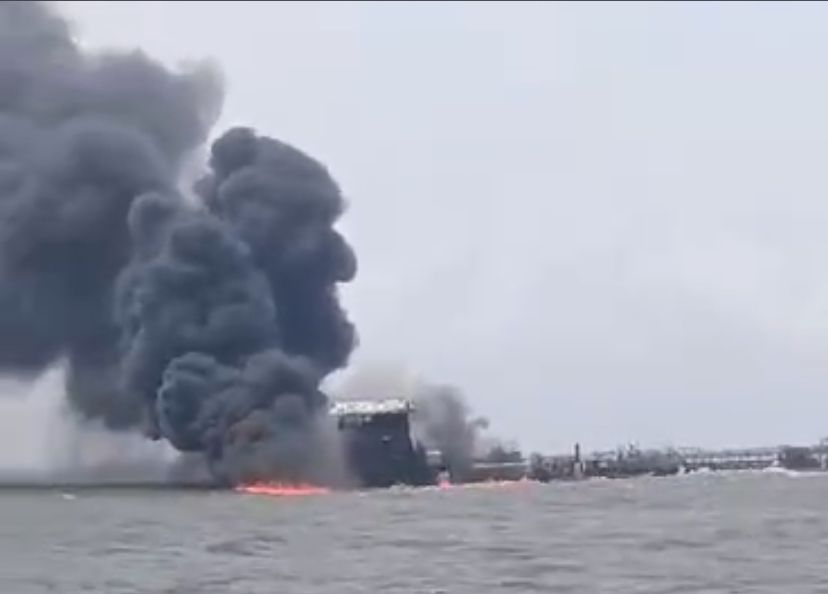
Environmental groups have called on the government at all levels to be proactive towards issues concerning environmental pollution and oil spills.
Their call followed a massive oil pollution ravaging Forcados area which has affected the Okuntu community coastline and other neighboring communities in Burutu Local Government Area of Delta State.
According to reports by the community, the oil spill was caused by a fire incident which happened on a Floating Production Storage and Offloading Facility owned by Brittina-U Nigeria Limited, at Ajakpa Field, OML 90.
Okuntu community which is in Ogulagha kingdom is close to Ibabebe (Isiayegbene) and Odimodi (Beniboye) communities, all along the Forcados area, who are also affected by the pollution, a statement issued by Elvira Jordan,
Communications Consultant to the groups said.
Speaking on the issue, Executive Director of Community Development Advocacy Foundation (CODAF), BENIN Richard, faulted the Federal and Delta State governments for Environment on their failure to conduct an on-the-spot assessment of the incident or issue a statement regarding this environmental disaster in Okuntu.
According to him, the people of Odimodi(Beniboye ), Okuntu and Ogulagha communities and the ecosystem are under assault, and it is imperative that the authorities take immediate action to address this situation.
He urged the Commissioner for Environment to visit the affected area promptly, providing hope and reassurance to the affected communities.
“We demand a comprehensive assessment, prompt cleanup, and adequate compensation for those affected. The government must take responsibility for ensuring the well-being of its citizens and the protection of the environment.
“We will continue to monitor the situation and advocate for justice and relief for the people of Odimodi (Beniboye), Okuntu, Ogulagha and adjoining communities.” He said.
Lending his voice on the issue, the Executive Director of Environmental Defenders Network, Chima Williams, lamented that the neglect of the local communities in relation to environmental pollution has become one too many in the Niger Delta.
He further laments that such neglect by the relevant agencies has driven communities in the Niger Delta into deep levels of poverty, as the people rely on their environment for survival.
Williams also called on the National Oil Spill Detection and Response Agency (NOSDRA) to immediately swing into action, and to compel the polluting company to clean up the polluted environment around Okuntu and other communities.
A fisherwoman from one the communities, Baby Oziye, lamented that the pollution has caused hunger in their community, adding that several people are now hospitalized after drinking their water, following the pollution caused by the spill.
She added that the fisher folk are unable to carry out their fishing activities, causing hunger among the people.
Another community member, Akin Ayigo who also spoke on the issue lamented that after the fire incident and pollution, neither the company nor the government has done anything about the issue.
He added that fishing boats are afraid to go close to the polluted area due to the high level of chemical concentration in the area.
He called on the relevant agencies to swiftly swing into action.
On his part, the chairman of Okuntu community, Mofort Mebilaje stated that fire broke out on the 18th of July 2024 from a facility owned by Brittina-U Nigeria, which caused crude oil and other chemicals to drift ashore, polluting the coastline of Okuntu and other communities.
He revealed that the people of the community are unable to carry out their fishing and farming activities which has crumbled the economy of the community, pushing the people into hunger and starvation.
He added that the community had tried to escalate the issue to the company without any response.
Mofort called on the federal and state governments to intervene on the issue and prevail on the company to constitute a Joint Investigation Visit to the community to determine the level of pollution and to send relief materials to the community.

FULL LIST: Those Supporting, Against Aug 1 Nationwide Protest

Religious Leaders Harp On Tolerance At Grassroots Sensitisation Programme In Benin

Act Fast On Oil Spill Rocking Forcados Area, CSOs Task FG, Delta Govt
Trending

 News2 days ago
News2 days agoNationwide Protest: The Killer Is Afraid Of Death [OPINION]

 Metro5 days ago
Metro5 days agoConfusion As Female Passenger Dies In Lagos Keke Marwa

 News4 days ago
News4 days agoJUST IN: Tinubu Sends ₦70,000 Minimum Wage Bill To NASS

 Entertainment4 days ago
Entertainment4 days agoActress Denies Alleged Affair with Senate President Akpabio

 News2 days ago
News2 days agoBREAKING: INEC Can Handle Local Government Elections, Says Chairman Yakubu

 News3 days ago
News3 days agoPAP: Again, Otuaro Meets Stakeholders, Re-emphasises Importance Of Collaboration

 Headline3 days ago
Headline3 days agoBREAKING: SGF, NSA, Ministers In Emergency Meeting Over Planned Nationwide Protest

 Politics2 days ago
Politics2 days agoPlace Obaseki On Security Watch List, Edo APC Urges FG, As State Govt Kicks

 Headline4 days ago
Headline4 days agoElon Musk Opens Up About His Transgender Child

 News4 days ago
News4 days agoJUST IN: Senate Passes Minimum Wage Bill From N30,000 To N70,000


